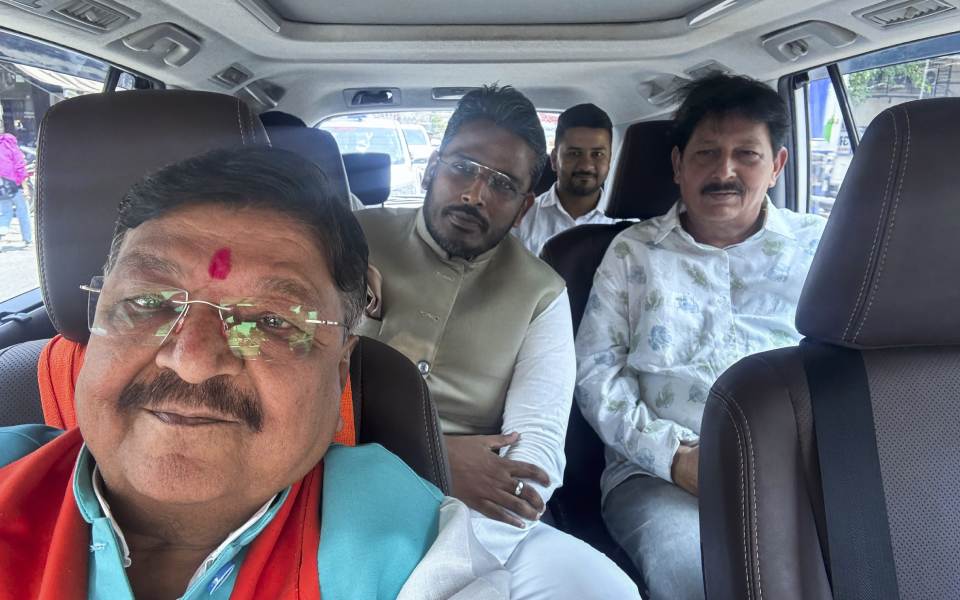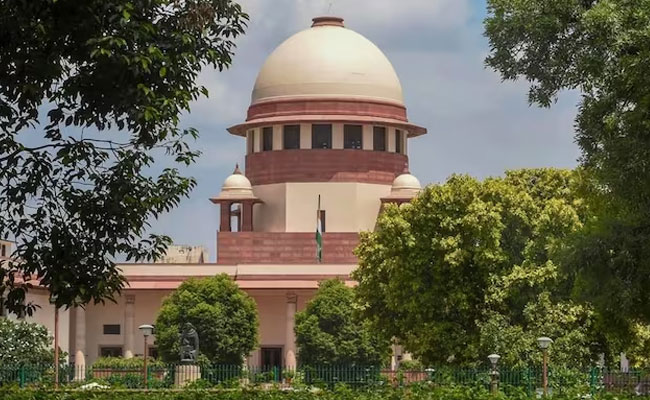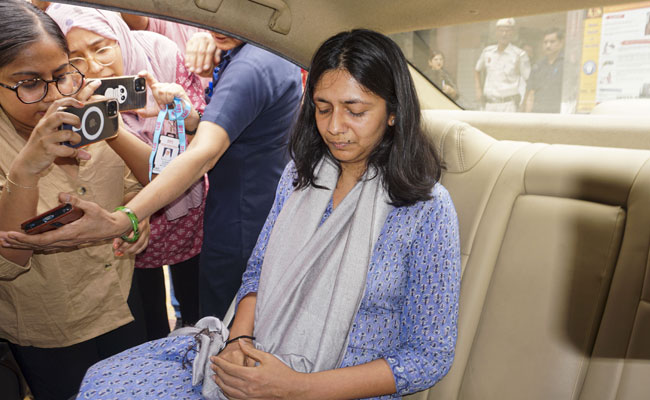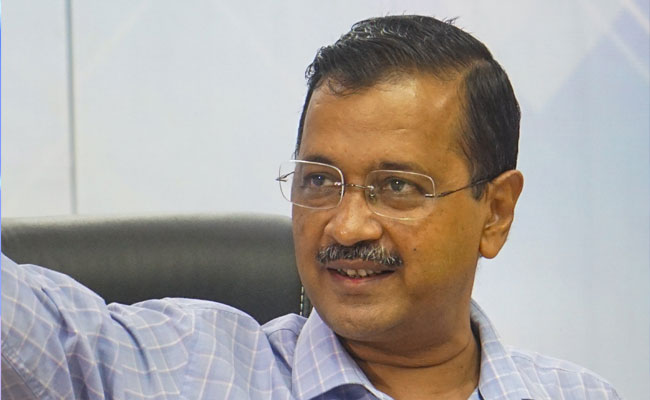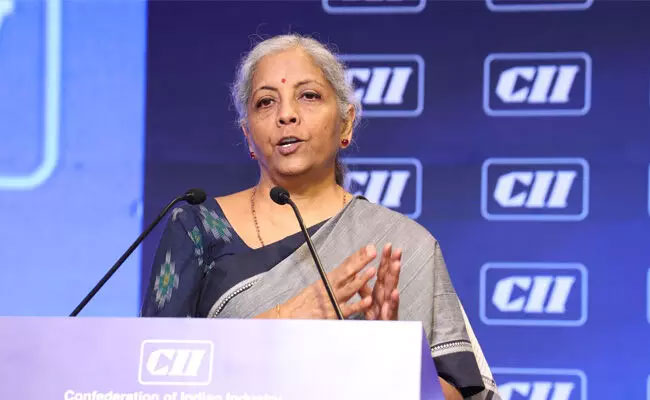Indore, May 2: The Congress, ejected from the contest after its Indore candidate joined the BJP, is appealing to voters to press the ‘None Of The Above’ (NOTA) option, a move slammed by the ruling party as negative tactics.
Akshay Kanti Bam, who had been pitted against BJP’s sitting MP Shankar Lalwani, shocked the grand old party on Monday, which was the last day for withdrawal of nomination, after he pulled out of the race and switched over to the saffron party.
The Indore constituency in Madhya Pradesh will go to polls on May 13 in the fourth phase of the general elections.
“Voters of Indore had delivered a huge victory to the BJP in the last municipal and assembly elections. In spite of it, the saffron party murdered democracy by unfairly luring Bam. Voters must give a befitting reply to BJP by hitting NOTA,” senior Congress leader Shobha Ojha told PTI on Thursday.
MP Congress chief Jitu Patwari had said on Tuesday that his party won't support any candidate, adding that voters had NOTA option to punish the BJP.
Congress leaders’ “instigation” of voters to use NOTA shows that the main opposition party is resorting to “negative tactics” in the festival of democracy, said Lalwani.
The BJP has been on a winning streak in MP’s commercial capital for the last 35 years.
Indore, the largest constituency in the state in terms of electorates, has 25.13 lakh eligible voters. BJP leaders have claimed that the party is aiming to win the Indore seat by a margin of 8 lakh votes this time.
During the 2019 elections, Lalwani defeated Congress’ Pankaj Sanghvi by 5.48 lakh votes. NOTA had polled 5,045 votes then.
After the withdrawal of nominations, 14 candidates, including nine independents, are left in the fray in Indore.
“The option of NOTA is not good for democracy. Voters must choose one of the candidates,” said Abhay Jain, who is contesting as an independent.
Jain heads the Janhit Party, formed by former RSS workers. The party is yet to be recognised by the Election Commission. Janhit Party is promising to “free Indore of drugs and money and muscle politics”.
Let the Truth be known. If you read VB and like VB, please be a VB Supporter and Help us deliver the Truth to one and all.
New Delhi (PTI): Every single day counts in matters concerning the liberty of citizens, the Supreme Court said on Friday while asking the Delhi High Court to decide on the regular bail plea of a businessman in a corruption case related to the now scrapped Delhi excise policy.
The petitioner's regular bail application has been heard by the high court on 40 occasions and now the matter has been adjourned to July 8, a bench of Justices B R Gavai and Sandeep Mehta was told by senior advocate Kapil Sibal, appearing for businessman Amandeep Singh Dhall.
"This cannot be that after 40 hearings, you don't decide the regular bail," he said.
The bench noted it has been informed that his regular bail plea was filed in July last year.
"In matters concerning the liberty of citizens, every single day counts. Keeping the matter of regular bail pending after almost 11 months deprives the petitioner of his liberty," the bench said.
"We request the high court to decide the bail application prior to the closure for summer vacations," it said.
Summer vacations in the high court start from June 3. May 31 will be the last working day.
Dhall is an accused in separate cases linked to the excise policy which are being probed by the Central Bureau of Investigation (CBI) and the Enforcement Directorate (ED). The ED's money laundering case stems from a CBI FIR.
A trial court had earlier dismissed his regular bail plea in a corruption case lodged by the CBI.
According to the probe agencies, Dhall allegedly conspired with other accused and was "actively" involved in the formulation of the liquor policy and facilitating kickbacks to the Aam Aadmi Party (AAP) and its recoupment by the "South Group" through various means.
According to the CBI and the ED, irregularities were committed while modifying the excise policy and undue favours extended to licence holders.
The Delhi government implemented the policy on November 17, 2021 and scrapped it at the end of September 2022 amid allegations of corruption.

